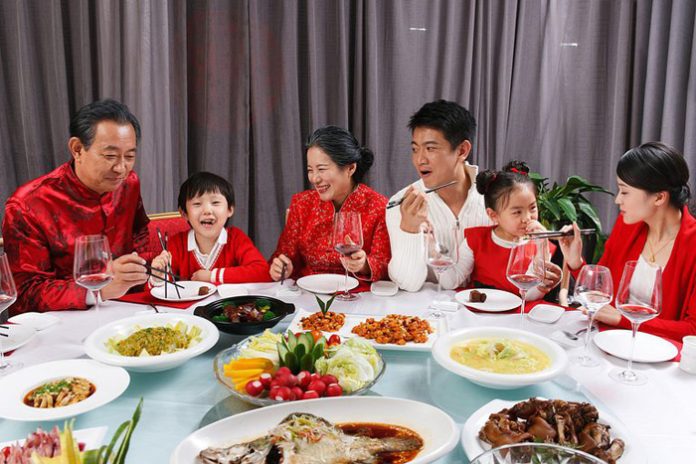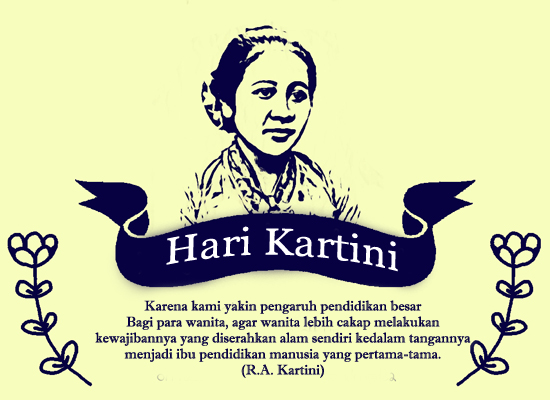Chinese New Year is the time of the year to embrace family members as well as close friends. Just like any other holiday, it focuses the importance on close family relations. But that is not all, as Chinese New Year is also the time to pray for good fortune, protection and luck for the year. It is for that reason that there are numerous traditions that must be practiced during the new year.
Here are several unique traditions:
- Gathering with family
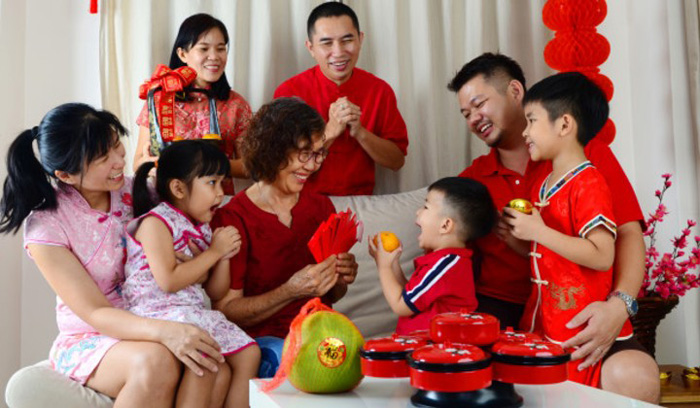
Not much different from the Eid al-Fitr, Imlek is also family oriented. Therefore, millions of Chinese people around the world will try to return to their respective homes (“Pai Nian [拜年]”) so that they can be with their mothers, fathers, and beloved siblings. Especially for those who live or work far from their hometowns, Chinese New Year is always a special time. This is a good time to catch up, eat delicious food, and honor departed ancestors.
- Watching the Lion Dance
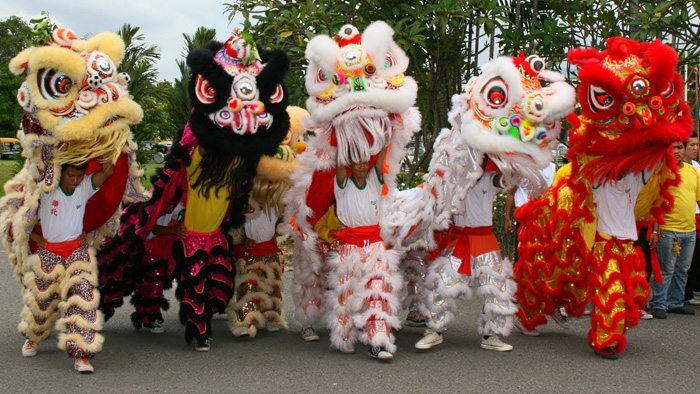
You must have seen the Barongsai or Lion dance both in person and in movies, right? This traditional dance uses a striking costume that resembles a lion – with striking colors like red or yellow which are considered to give prosperity and good fortune. In this dance, the dancers (usually there will be two dancers for each Barongsai) jump swiftly, moving their bodies and heads to make the Barongsai costume look “alive.” These Barongsai are also often seen dancing to ward off “a dragon” – known as Nian who is considered a symbol of “evil spirit”.
It is said that, the loud beating of the drums and cymbals, as well as the dance movement itself can drive out evil spirits! In addition, another habit that is also often found is giving angpau or offerings to Barongsai. This is believed to give good luck in the coming year.
- Chinese New Year Prayers
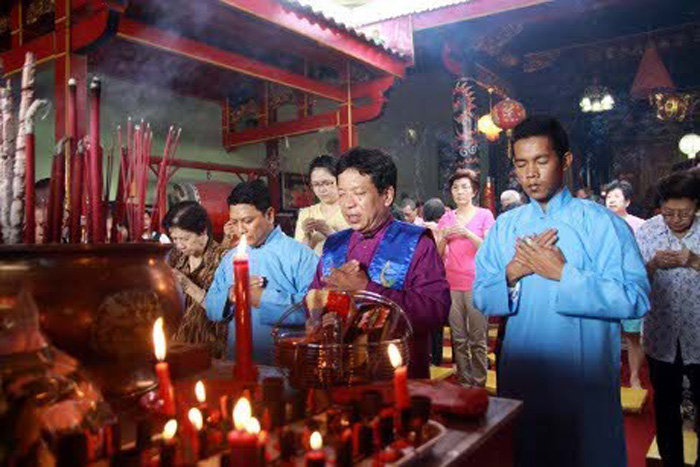
The prayer during Chinese New Year itself is actually a form of gratitude, as well as hope so that in the new year all family members receive sustenance and health. The Chinese New Year prayer is also intended to remember the ancestors along with their extended family. There are many foods that are usually served during prayer. Among the most famous are milkfish, pork, oranges, and kue keranjang (basket cake).
- Eat Milkfish
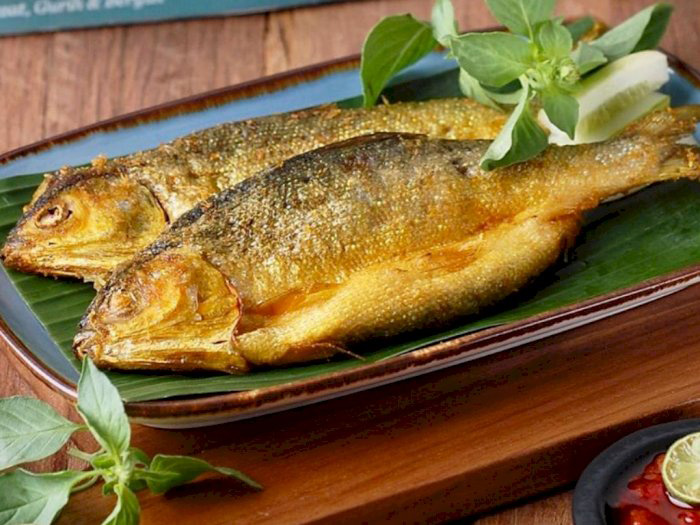
Fish is believed to be a symbol of happiness and luck by people of Chinese descent in Indonesia, and the term eating milkfish is known as Nian-Nian Yu Yi. According to its origins, the word “fish” which reads “yu” has the same pronunciation as the word “more”. That way, it is hoped that the fortune in the new year will continue to be excessive. Oh yes, the way to eat it also different. The milkfish served should not be turned. If one side is eaten up, you can’t take the meat on the other side by turning the fish. You have to try to take it from the side that is finished. According to tradition, milkfish should not be consumed at once on that day and should be left for the next day, this symbolizes an inexhaustible sustenance. Additionally, the fish served are usually large in size, because the belief is that the bigger the size, the bigger the fortune.
- Prepare Food
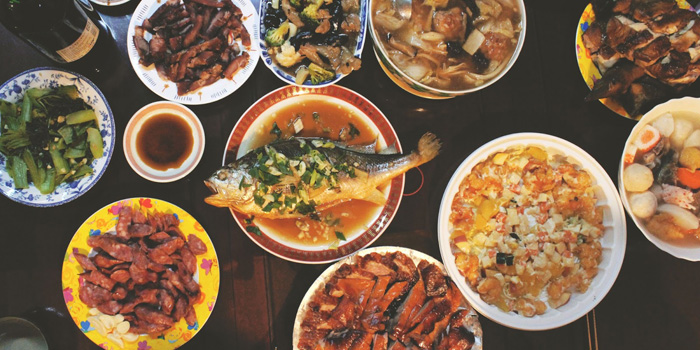
Kue keranjang and oranges are foods that must be provided during Chinese New Year. During prayer, this meal is usually served in amounts between five, eight or nine, and should not be served in quantities of three or four. This is done because the number 3 is considered too little, while the mention of the number 4 (si) in Mandarin is similar to the pronouncement of the dead (si), so these two numbers are usually avoided. On the other hand, the number 5 describes the completion of the five important elements according to Chinese belief (fire, water, earth, wood, and metal), the number 8 represents infinite or endless prosperity, while the number 9 or the highest number represents perfection.
Chinese specialties are also not to be missed when talking about Chinese New Year traditions in Indonesia. In addition to Kue Keranjang and oranges which are mandatory foods, the Chinese community also serves a minimum of 12 types of food that symbolize 12 kinds of zodiac signs in Chinese beliefs.
Not only that, some people also prepare lucky foods such as uncut noodles and century eggs because it’s considered to symbolize longevity.
- Have Family Meals
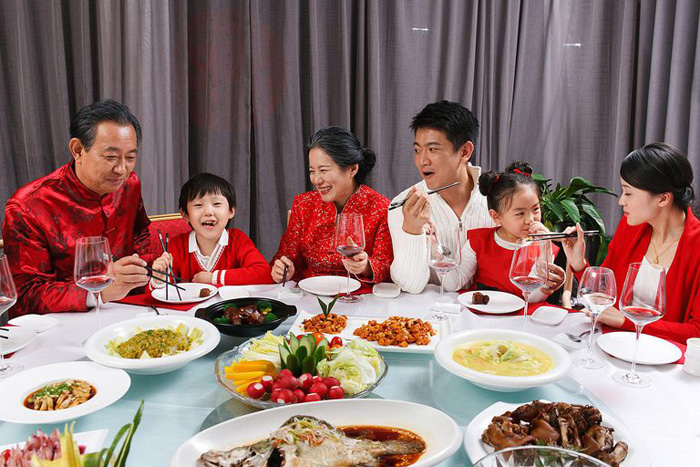
Having dinner together (“Tuan Yuan Fan [团圆 饭]”) during the Chinese New Year celebrations is important. This is usually done the day before Chinese New Year, or if you don’t have time, then dinner can be done during Chinese New Year. Usually, the meal together will be held at a round table with a rotating plate in the middle. The oldest family members such as grandparents will be welcome to take food first. At times like this, usually the Yu Shang tradition is held.
Meanwhile, the morning of Chinese New Year, eating together is also done but usually the dishes served do not contain meat. This was believed to be a tribute to a god who did not eat animate animals.
- Yu Shang Tradition
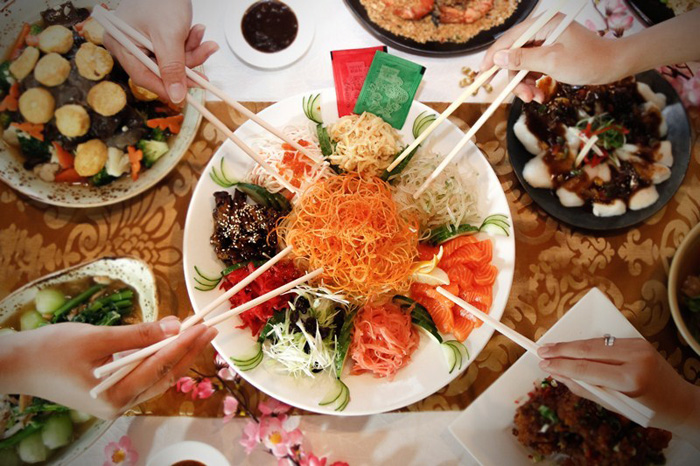
This eating tradition is brought directly from China and is done in a special way. At dinner, there is usually one Yu Shang plate on the table, with several foods on top: salmon, carrots, radishes, oranges, nuts, lime leaves, pickled red ginger, red peppers, plums, noodles and more. As dinner started, the family members standing around the round table would stir the food together and lift it up with chopsticks as high as possible. This is done with the hope that the higher the food is placed, the more luck there will be.
- Sweep the Floors
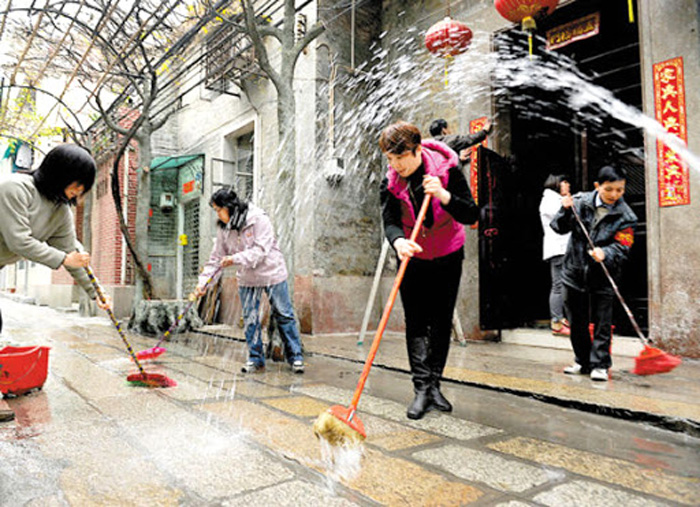
For Chinese society, sweeping the house (“Shau Chen [扫 尘]”) the day before Chinese New Year means removing or cleaning the house from bad luck, so that luck can enter the next day. After the house has been cleaned, usually the broom will be stored in a hidden place, and the house will be left as it is until the Chinese New Year is over. For the Chinese community, sweeping the house and yard during holidays actually means throwing away the luck that comes.
9. Give Away Angpau
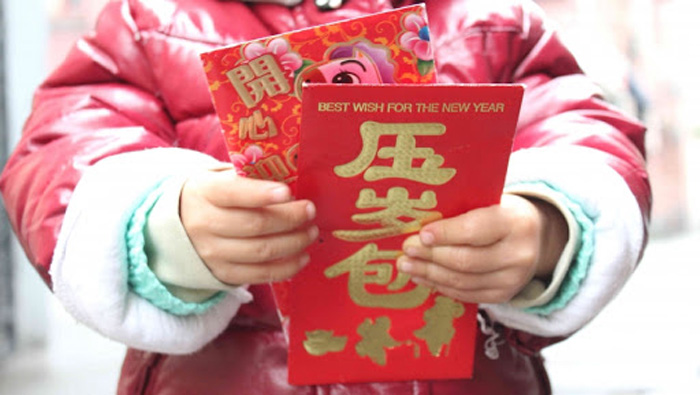
Here comes the most eagerly awaited tradition for children and those who are single during Chinese New Year: angpau! Children usually get “rich” instantly because their parents or married relatives are required to give angpau during Chinese New Year. Angpau itself comes from the Hong Pao word which means red bag, and is usually filled with a certain amount of money in it. There are no rules regarding the amount of money, and the nominal value does not have to be large. The important thing is that it is in the form of new banknotes and not in the form of coins. This was done because it was believed that distributing paper money would later get paper money as well, while giving coins or nickels would later get coins as well.
Distributing angpau is also believed to facilitate future sustenance. It would be better if the angpau given is red because it symbolizes prosperity. Now, for children who want to receive angpau, they usually say happy new year by wrapping their right fist with their left hand. This is done because the right fist connotes aggressiveness. On the other hand, those who are not married are not allowed to give angpau because it is believed that it will make finding a partner more difficult.
10. Wear Everything Red

According to Chinese beliefs, Nian – a kind of beast that lives on the seabed – will come out during the early spring or Chinese New Year. Nian’s arrival really disturbs humans, especially young children. Fortunately, Nian is very afraid of the color red. That’s why everyone will decorates their house, wear cheongsam clothes and accessories colored red to drive Nian away. Apart from that, the red color also symbolizes good luck and prosperity.
11. Get a Haircut
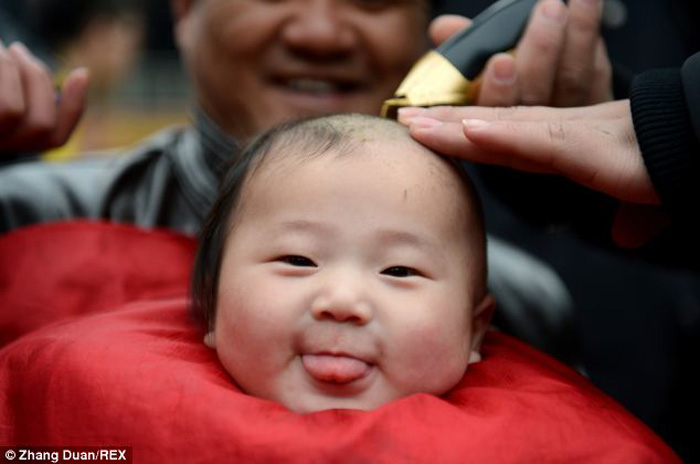 Source: Zhang Duan/REX
Source: Zhang Duan/REX
Other than preparing new red clothes to give a sense of optimism for the new year, those who celebrate Chinese New Year usually have their hair cut a few days beforehand. In addition to maximizing your appearance during Chinese New Year, cutting your hair also means getting rid of bad luck.
12. Watch Fireworks and Firecrackers
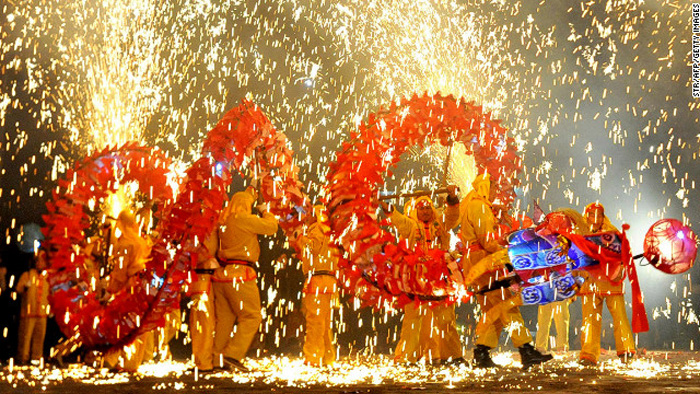
Firecrackers and fireworks are synonymous with big celebrations, especially during the New Year. The same is true at Chinese New Year celebrations. In addition to celebrating this once-a-year celebration, according to Chinese belief, burning firecrackers and fireworks right on Chinese New Year is a must to get rid of the bad luck of the previous year and to wish a happier and better new year.
13. Put Up a Picture of The God of Doors
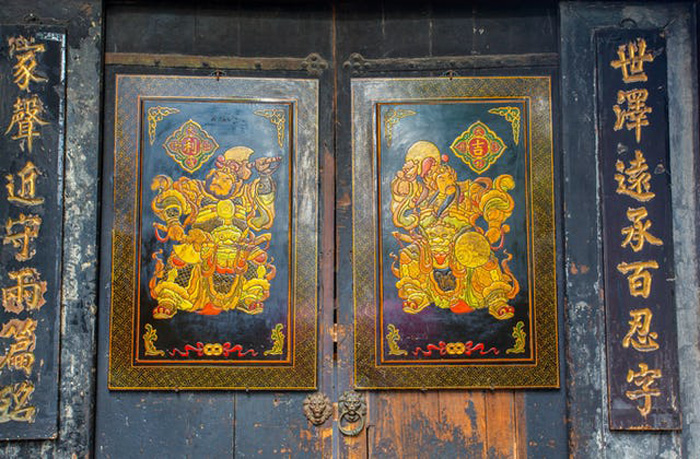
Another Chinese New Year tradition is to put up a picture of the God of Doors. This ritual is believed to drive out evil spirits and keep the house safe. Apart from that, the God of Doors is considered to bring blessings, long life, health and peace.
14. Pray for Rain
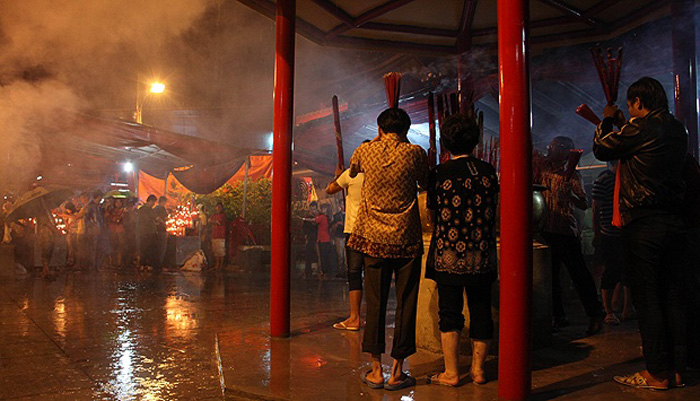
Apart from the red color, Chinese New Year is also synonymous with rain. Chinese people often expect rain during the Chinese New Year because they are considered to be the bearers of sustenance and blessings, as is the case with the Chinese New Year tradition in Indonesia.
Which tradition seems the most interesting to you? Tell us in the comment section below!

